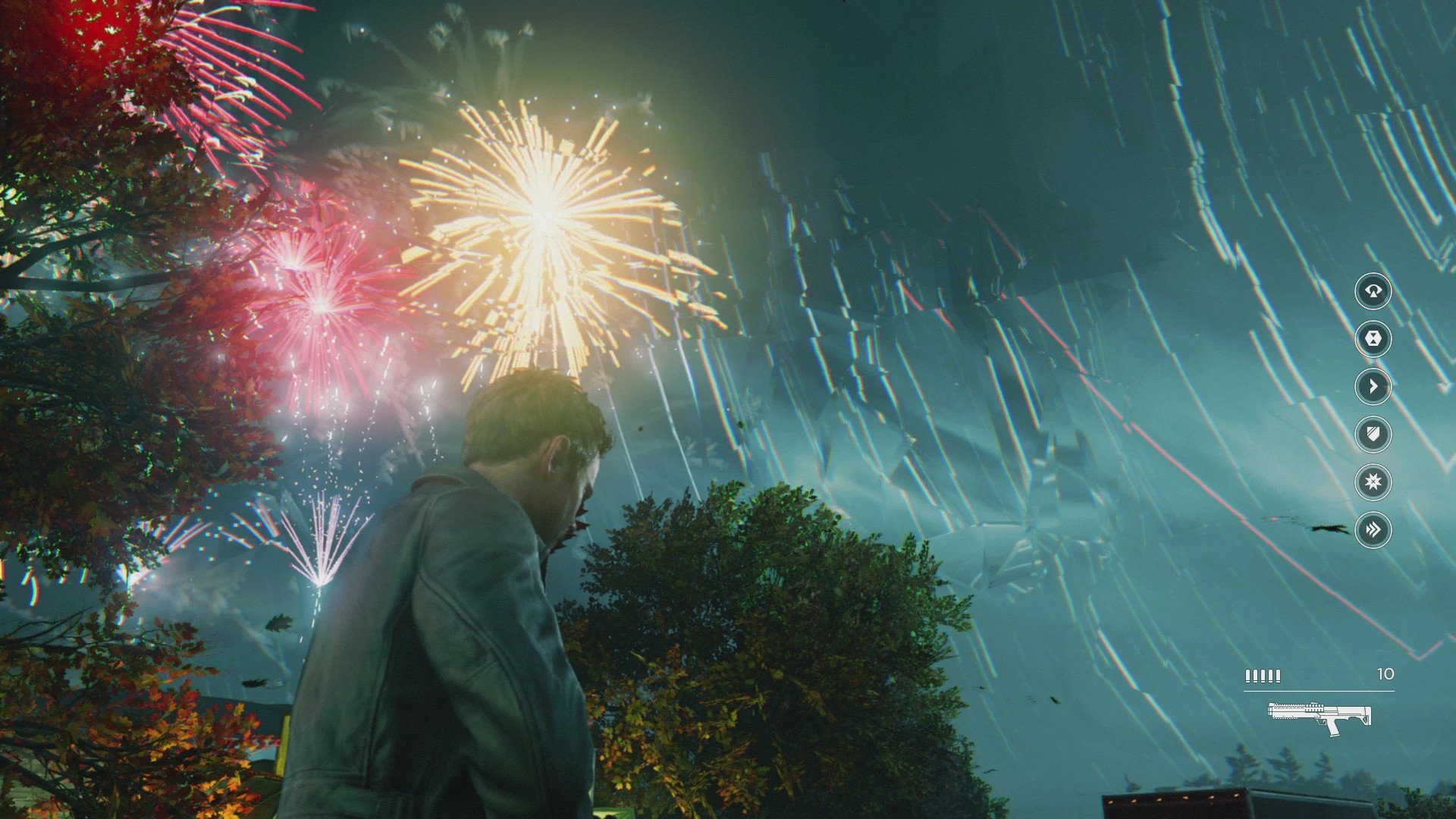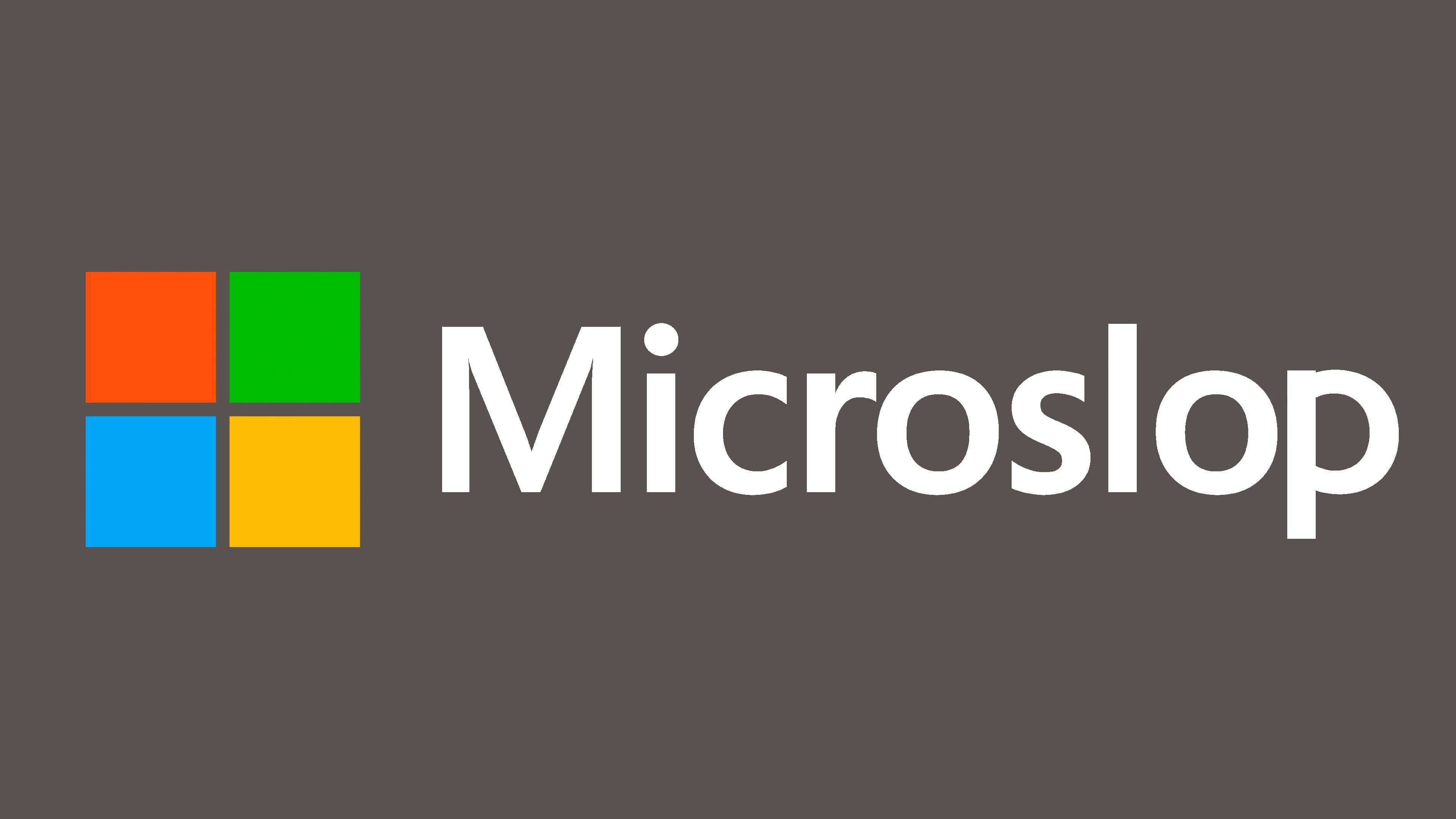
Disregard the fact Quantum Break is one of the most visually enthralling games I've ever played, forget its supremely satisfying and strategic take on third-person shooting; Quantum Break's story and its delivery are jewels that enrich the entire medium.
Quantum Break is an unrivalled experience, and quite possibly the Xbox One's first true killer app.
Disclosure: This Quantum Break review was conducted on Xbox One using a copy provided by Microsoft.
This review is going to be as spoiler-free as humanly possible, but I want to touch on some narrative elements because it's what makes the game so impactful. While I won't discuss any particular plot points, I've left the story segment until the end of the review so you can skip over it if you'd rather go in with a blank slate.
What is Quantum Break?
Setting
Quantum Break is the brainchild of Remedy Entertainment, famed for Max Payne and Alan Wake. It follows the tale of a time travel experiment gone horribly wrong. Jack Joyce (portrayed by Shawn Ashmore) and his allies embark on a quest to repair a fracture in the fabric of time itself. Their endeavors bring them into direct conflict with the shadowy Monarch Solutions Corporation, whose leaders appear to be attempting to exploit the catastrophe for profit.
At its core, Quantum Break is an action-adventure game with an emphasis on time-bending combat abilities and third-person shooting wrapped in a heavily cinematic narrative. Not only that, but Quantum Break features a big-budget character-driven TV show that follows the motivations of the game's antagonists.
All the latest news, reviews, and guides for Windows and Xbox diehards.
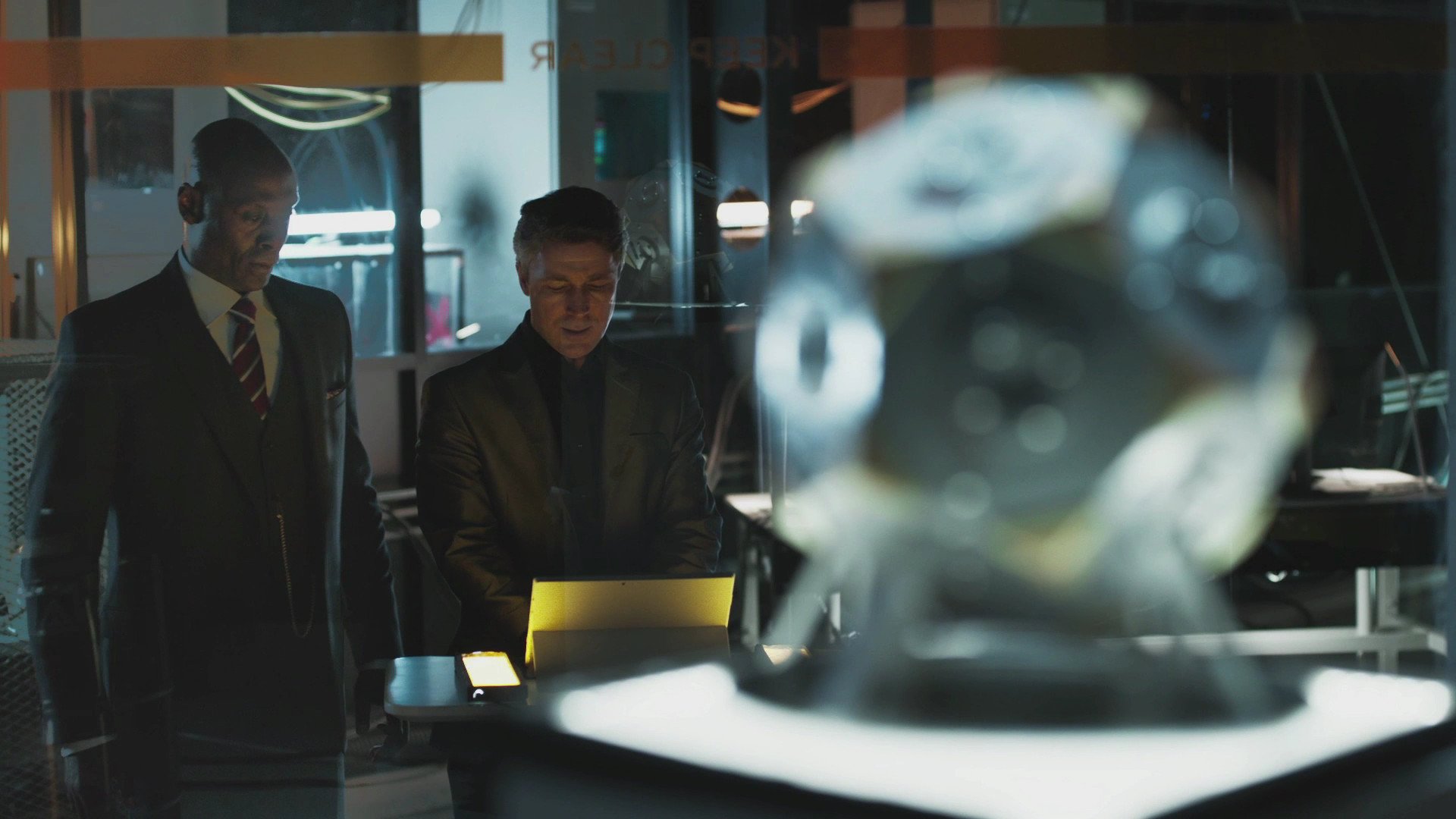
Microsoft has obviously invested a lot into Quantum Break, from its Hollywood cast to its groundbreaking effects. Lacking a season pass or any form of engagement-retaining multiplayer, Quantum Break appears to be a pretty risky title. The way the game interweaves with its TV segment hasn't been attempted on this scale before; the PC version is a Windows 10 Store app — which continues to be controversial with core PC gamers — and the risks are compounded by all the uncertainties inherent in a new property.
As much as I loved both Alan Wake and both Max Payne titles, I had genuine concerns about Quantum Break. Live action has an unfortunate history in gaming, and I was immediately sceptical of yet another linear cover shooter that relies on flashy visuals and gimmicks over depth to sell itself.
Thankfully, Quantum Break shattered my preconceptions in a timely fashion, on every single front.
Jaw-dropping
Graphics and Audio
From its announcement trailer, Quantum Break set senses sizzling with its conceptual spin on special effects in games, and the finished product delivers on those promises in a big way. Layers upon layers of effects ooze from every combat ability, affecting the environment, time-frozen objects, enemies, and even the game's backdrops. To achieve this, Quantum Break utilizes some pretty fancy techniques, and the results are nothing short of hypnotic.
As a game largely based on time and its manipulation, Quantum Break has been forced to pay very fine attention to detail. Remedy are well known for this, but objects that you'd typically ignore in a standard shooter are often a front and center spectacle in Quantum Break while they're suspended, liquefied and contorted by the game's chaotic physics. When time stops, you can see the bullets frozen in mid-air, every shard of shattered glass, the sparks of an impending explosion, all locked in a breathtaking three-dimensional diorama you can freely explore.

It's clear that the live action TV segment created an impetus for Remedy to achieve some of the most realistic facial renderings ever seen in a game. Being able to see subtle facial cues we take for granted adds an extra layer of depth to Quantum Break's characters, and as the game pivots between live action and digital 3D, the quality of the game's character art limits these frequent switches from being too jarring. Quantum Break makes a point of seamlessly transitioning from the in-engine version to the live action version of a scene to kick off each TV episode, and it shows the studio has paid careful attention to make those interweaving experiences complementary rather than exclusionary.
All these physics-abusing capabilities result in spectacular visual exhibitions that intensify the joy of the game's tactical combat.
Beyond cinematics, Quantum Break's special effects give unbelievable impact to the game's much-advertised combat abilities. Jack Joyce can move freely within frozen time, freeze fields of enemies in a quantum standstill and create violent blasts that rupture the very fabric of reality. All these physics-abusing capabilities result in spectacular visual exhibitions that intensify the joy of the game's tactical combat.
You'll be repeatedly rewarded for your victories with a quantum ballet of slow motion particle effects, ragdoll kills and haunting time-shattered screams. The audiovisual results of the game's combat are almost as addictive as the mechanics themselves, which is a rare and welcome combination.
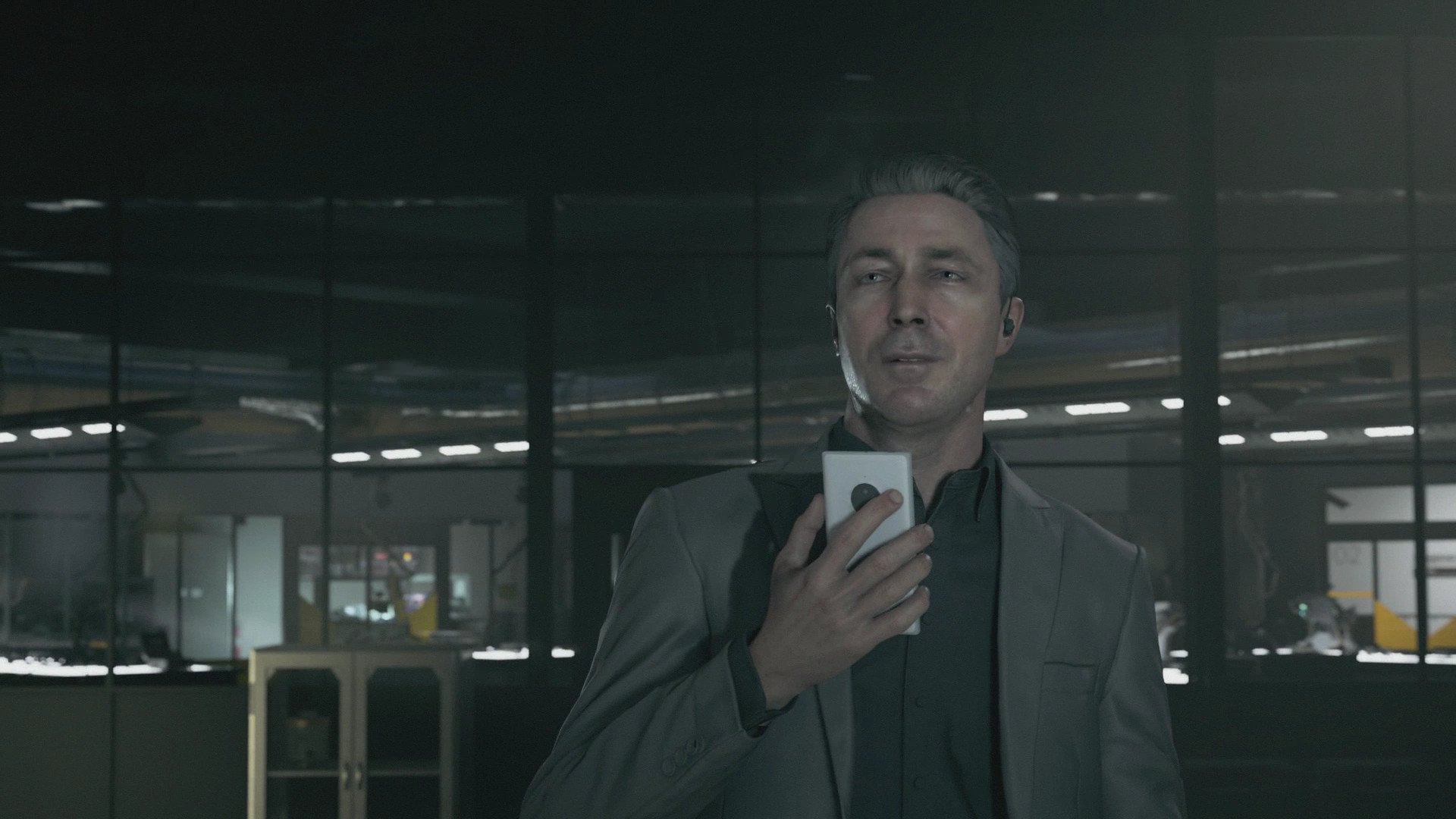
Remedy Entertainment uses a combination of special techniques to give Quantum Break such dense, high-frequency effects without causing your Xbox One to explode. The results are staggering — but there are clear trade-offs.
I have no tools to measure this empirically, but Quantum Break on Xbox One appears blurry when compared side by side with other recent titles, like Halo 5 or The Division. On Xbox One, Quantum Break uses the temporal reconstruction of several 720p frames with high levels of multisample anti-aliasing to hit 1080p. Even with 4xMSAA, the edges of character models appear distorted during gameplay segments while looking incredibly smooth in the less-intensive cutscenes. The texture popping can be quite harsh at times as well, and while it often fits in with the game's time-fractured vistas, screen-tearing does occur. The team has clearly done everything they can to compress their creativity into the Xbox One's capabilities. I don't have a PC that even approaches Quantum Break's minimum specs, but I suspect the way it looks on a Nvidia GTX 980 Titan will be a little more in-line with Remedy's vision.
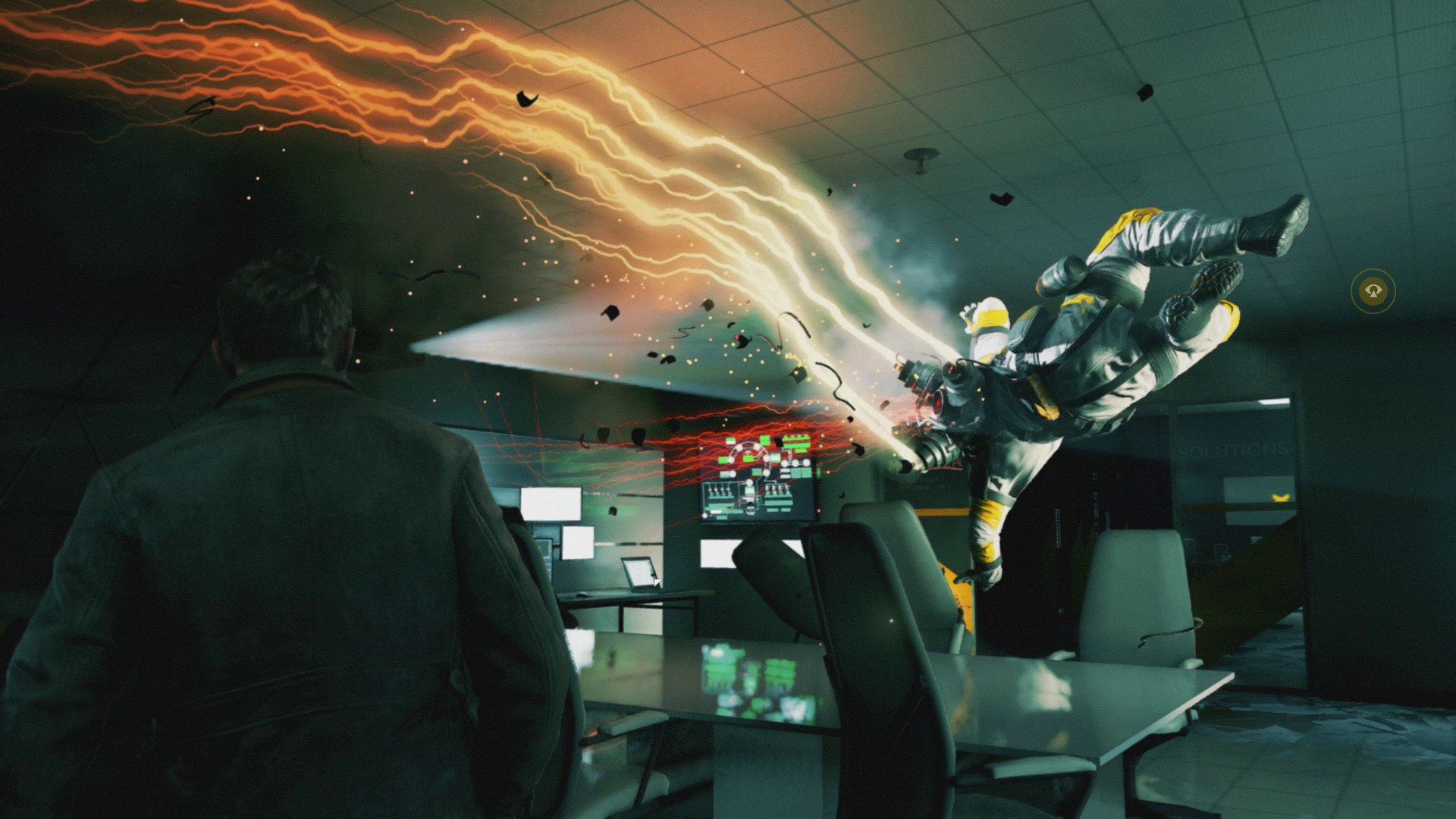
Regardless of the platform you choose for Quantum Break, you'll find yourself picking your jaw up off the floor multiple times throughout its lengthy adventure. While its ambitions expose the widening disparity between the static hardware of current-gen consoles and the infinite potential of a PC, it shows Remedy Entertainment at their absolute eye-watering best. Quantum Break is audiovisually triumphant, and it will leave your senses in ecstasy.
Time flies
Gameplay
I expected Quantum Break to be a linear third-person cover shooter with the occasional visual set-piece, leveraging its TV show primarily as a unique selling point. I almost feel guilty for my lack of enthusiasm. In true Remedy fashion, Quantum Break places a delightfully unique spin on the shooter formula, rewarding the strategic, methodical gamer while punishing the overzealous.
You play as Jack Joyce, the rebellious brother of William Joyce. As mentioned earlier, Jack becomes irradiated by chronon particles as a result of a failed time travel experiment, gaining the ability to bend time itself to his will.
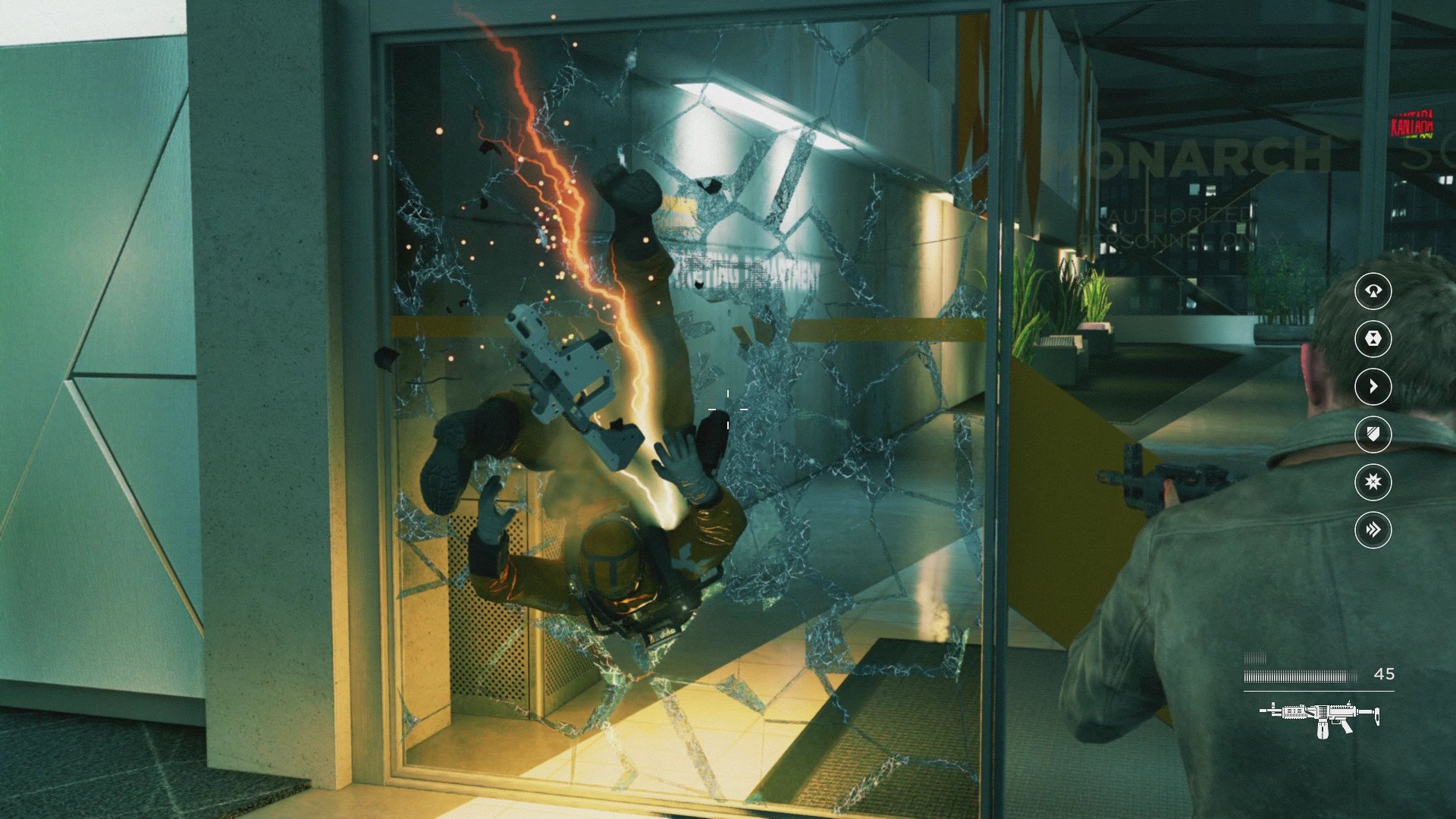
When I first picked up the controller, I attempted to play Quantum Break like a basic cover shooter. Indeed, to start with, Jack Joyce isn't acutely aware of his capabilities, and this fact is explored as both a plot point and gameplay mechanic. As you progress through the game's combat scenarios and story, you'll begin to unlock new skills. Those abilities are the core of Quantum Break's combat with shooting playing more of a complementary role.
I mentioned in the graphics section that your combat skills ignite waves of effects that paint the environment with shattered light, broken voids of time and satisfying slow-mo kills. To produce those graphical feats, you'll be carefully managing your ammunition, positioning, and time ability cooldowns. Jack Joyce isn't an armored super soldier; he can die incredibly quickly, and the enemy A.I. is suitably aggressive. As a result, Quantum Break is a refreshingly mobile shooter, and it gives you the all the tools you need to react to that paradigm.
The thoughtful approach to combat and its pulsing quantum phenomena left me utterly elated.
Brushing my early concerns aside, Remedy has carefully tuned the game's combat to ensure no single ability is more powerful than all others. It forces you to make use of all the tools at your disposal and react to the game's varied challenges. Time Stop is Jack's most versatile technique, creating a field that freezes all enemies caught inside. You can then unload reams of ammunition into the field's shell, which catches the bullets and suspends them — allowing them to strike a target in one burst once time begins to flow properly again. The force of the bullets sends enemies in satisfying arcs, crashing against the game's highly destructible environments in a hail of slow-motion debris and bullet trails.
Of course, Time Stop can also be used defensively, freezing encroaching enemies while you use Time Dodge to speed away. Most of Quantum Break's powers can be used in multiple ways, which only adds to the dynamism of its combat. Jack's Time Shield not only prevents incoming bullets, bouncing them away in an impressive fireworks display, but using it in the vicinity of other enemies will briefly stun them in the ensuing shockwave, giving you a moment to react with an instance of Max Payne-like bullet time. All of Jack's abilities can be upgraded by hunting down hidden Chronon sources, but the upgrades don't dramatically alter the way you play.
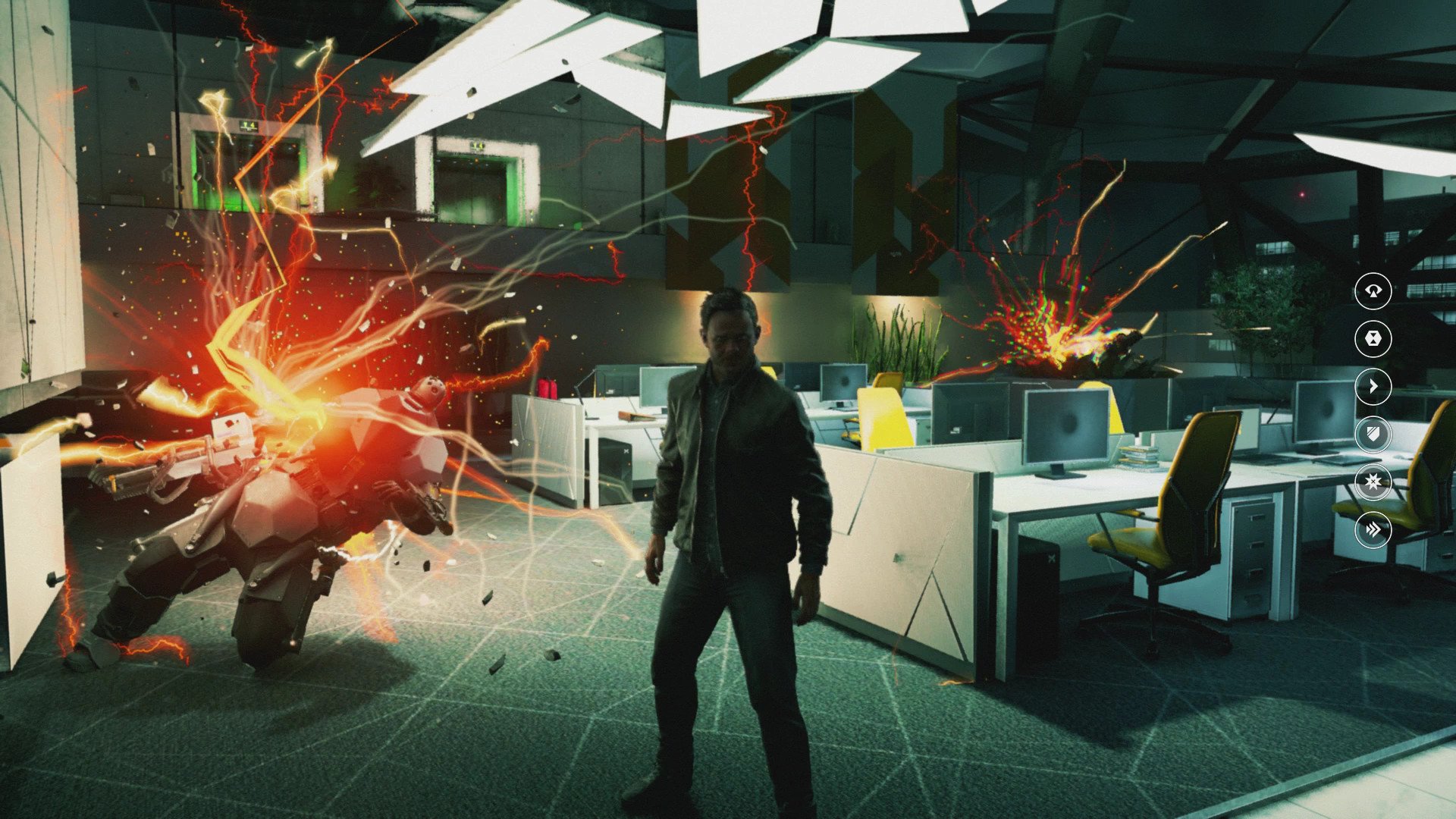
Just as you begin to get used to Quantum Break's various Kevlar-clad enemies, the game works new challenges into the mix. From enemies with the tech to resist your powers, anti-time power field generators, and hulking exo-suited soldiers, Quantum Break sidesteps repetition, and it does so in ways that extend beyond combat.
When you're not plowing through Monarch Solution's private security forces, Quantum Break also presents you with rudimentary physics puzzles, basic exploration and platforming gameplay. The game world is littered with emails, audio files, and even past events you can view using Jack's time reversal powers. Narrative objects act as collectibles, but also add depth (and often, insane implications) to the game's gripping plot and characters. Some of those objects even trigger additional scenes in the TV show, with scenes that range from shocking, hilarious and utterly tragic.
This is more feedback than criticism, but I feel that when a game excels in specific ways, it can shine a spotlight on weaker areas. I would've liked Quantum Break to take their physics puzzles a tad further, and polish its occasional platforming sequences a little. Quantum Break also features a couple of pseudo-boss fights that are disappointingly basic, missing out on the potential to create some truly climactic set pieces and plot resolutions. And, as good as Quantum Break's cinematic aspects are, the ratio of playable sequences could've been higher — if for no reason other than how fun they are.
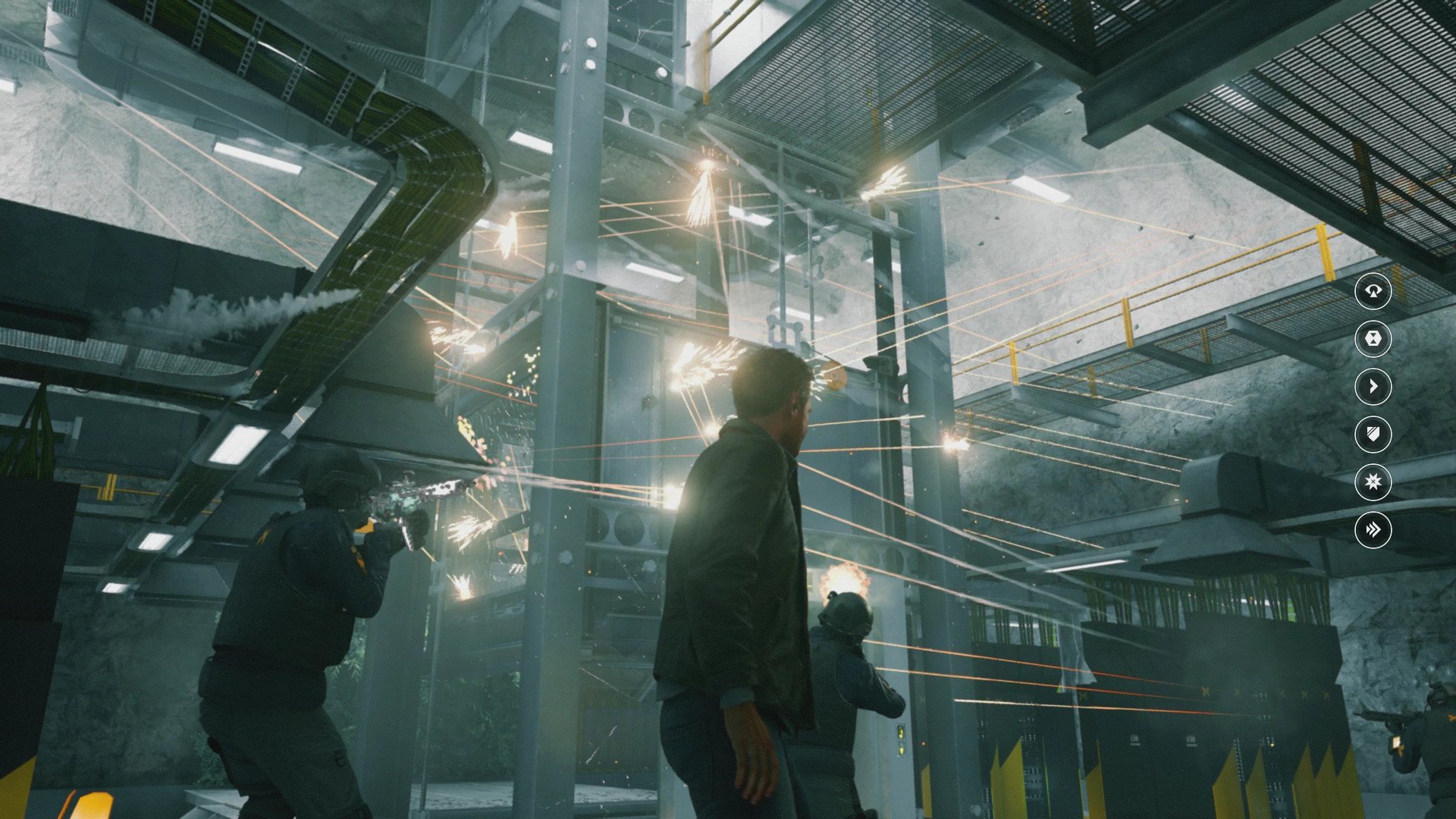
Regardless, Quantum Break is the most enjoyable third-person shooter I've played in years. It defies its humble archetype, creating something that feels truly fresh in an industry dominated with rehashing and remasters. The thoughtful approach to combat and its pulsing quantum phenomena left me utterly elated. It often feels less like a game, and more like you're the actor and director of a personal pre-rendered action movie.
Cohesion is the theme here, and it was hard to write about Quantum Break's gameplay without mentioning its story, and its delivery. Quantum Break is a cinematic adventure in every sense, and the way the playable segments overlap with the game's live action sequences and in-engine cutscenes will have a huge impact on how you experience this title.
Mind = blown
Story & TV
As good as Quantum Break's visuals are, as amazing as Quantum Break's combat is, nothing prepared me for the impact the game's story would have on me. The way Quantum Break's story is delivered elevates the medium. It reveals a missing link that prevents gaming from ascending into the critical "artistic mainstream" to sit alongside movies and TV.
Quantum Break's story follows an episodic structure, similar to Alan Wake. The playable game follows the game's heroes, while the live-action show generally follows the game's antagonists. As you get deeper into the story, Quantum Break chips away at the core "good vs. evil" story, revealing moral shades of grey in every character's motivations.

Each time you complete one of the game's playable levels, you're presented with an in-game scene that serves as an introduction to the upcoming episode of the TV show. Those scenes usually offer a choice, referred to in-game as a Junction, and those choices will dramatically alter the way you perceive the game, and its characters.
Aiden Gillen (Game of Thrones) portrays the somewhat tragic Monarch Solutions exec Paul Serene, locked in a fatalistic obsession about the nature of the time fracture. It brings him into direct conflict with his childhood friend, Jack Joyce (Shawn Ashmore, X-Men) and his brother, the scientist William Joyce (Dominic Monaghan, Lord of the Rings) — responsible for discovering the Meyer-Joyce field, upon which all the game's science fiction rests.
Without giving away too much, renowned physicist William Joyce stumbles upon the solution of time travel. Through a complicated chain of events, Paul Serene manages to trigger a catastrophe by activating an imperfect version of William Joyce's time machine. Paul and Jack become irradiated with Chronon particles in the process, gaining superhero-like powers over time itself. Paul's travels through the damaged time machine give him the unwavering conviction that nothing can be done to repair the fracture in reality.
The entire cast do a tremendous job bringing Quantum Break's story to life. Due to the time travel phenomena and story choices, some of the actors are called upon to portray wildly different versions of their character's personalities, and they do so with confidence. The Joyce brothers have tremendous chemistry, and even manage to inject some Remedy-style humor into the otherwise dire proceedings. For me, it was Lance Reddick's (The Wire) merciless, flesh-crawling portrayal of Monarch Solutions' executive Martin Hatch that stole the show.
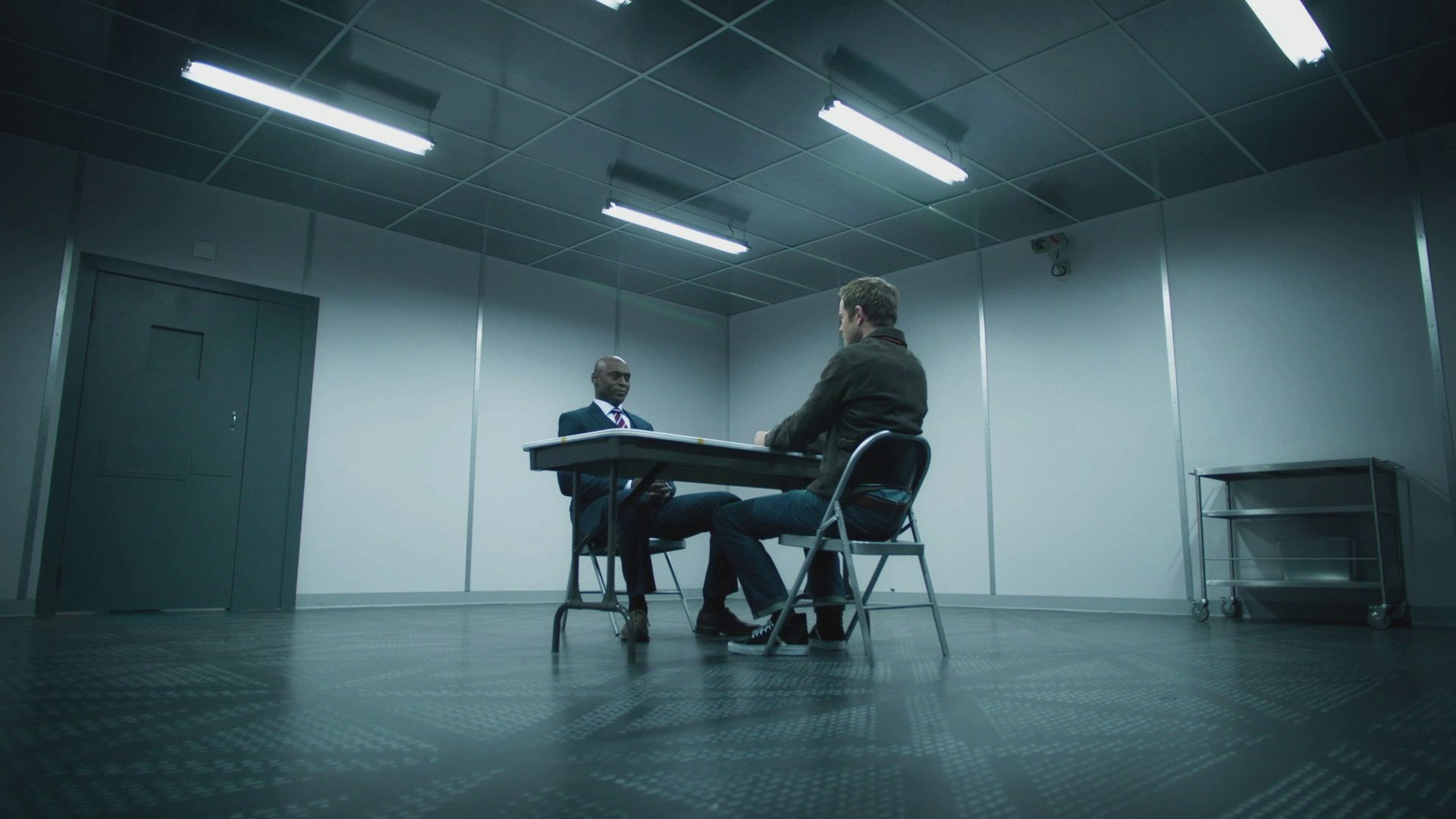
The story explores a catalog of time travel tropes and scientific theories, with a hint of fun, self-aware superhero clichés for good measure. Depending on your level of engagement with the narrative, your experience will be entirely different — and it appears to be by design. Remedy have cleverly segregated the more complex, somewhat maddening time travel implications into the TV show and various emails and audio collectibles scattered throughout the game. If you just want an action game, and don't fancy sitting through the game's TV show, you'll still have a blast. But if you take your time and pay attention, some of the twists, turns, and implications that the show offers will totally blow your mind. If you're a fan of time travel fiction, Quantum Break challenges the best that Hollywood has to offer.
If you're a fan of time travel fiction, Quantum Break challenges the best that Hollywood has to offer.
It can be a little hard to follow at times, as time travel fiction often is, but it's compounded by the sheer number of characters, complex real-world physics theories, and intertwining sub-plots. Even the most minor supporting actors have important and engaging roles to play. All those different plot facets and deep characters lead me to believe that Remedy could craft a sprawling franchise with Quantum Break, rather than a one-hit wonder. I immediately found myself invested in the game's lore, and like someone who's just binged an entire show on Netflix, I'm hungry for more.
My path through the game's story led me down through some incredible plot points, throwing disturbing mysteries that had me pouring hours into obscure time travel forums and physics Wikipedia articles. There really is so much more to Quantum Break than the marketing led us to believe. It's the type of story that'll have fans driving themselves crazy, collating the game's hints in an attempt theorize away its most troubling mysteries. It's a testament to Remedy's writing and story structuring that those deeper elements are never forced on the viewer — they feed through a little more subtly. It's another testament to Remedy's writing that, even if you rush through the game, and skip the TV show, the narrative remains totally coherent. Additionally, I've traversed some of the game's multiple-choices, and discovered wildly different events and collectables through the game's story as a result, this adds volumes of replayability and depth.

Most importantly though, just adding live action with human actors solves a subtle psychological barrier that exists between games and film. As good as the character models are, and facial rendering and mo-cap is, today's tech can't replicate the emotional subtleties we communicate with physical expression. Quantum Break shatters that barrier, and coalesces both mediums into one of the most impactful and memorable video game experiences I've ever had.
Masterpiece
Conclusion
I went in with the fear that Quantum Break's risky experiment with live action wouldn't work, that it'd wreak havoc on the game's pacing, and alienate those looking for a game, rather than an interactive TV show. Remedy Entertainment strides confidently throughout both mediums, as though they were Jack Joyce himself navigating those stunning pockets of molten time.
The gameplay is fresh and satisfying, the visual design is beyond anything we've seen, and the story is layered and engrossing. The pacing whiplash between its action-packed combat and lengthy TV breaks required a little adjustment on my part, but I'm glad it was Remedy who were the first to take plunge. They've not only proven it's possible, but desirable.
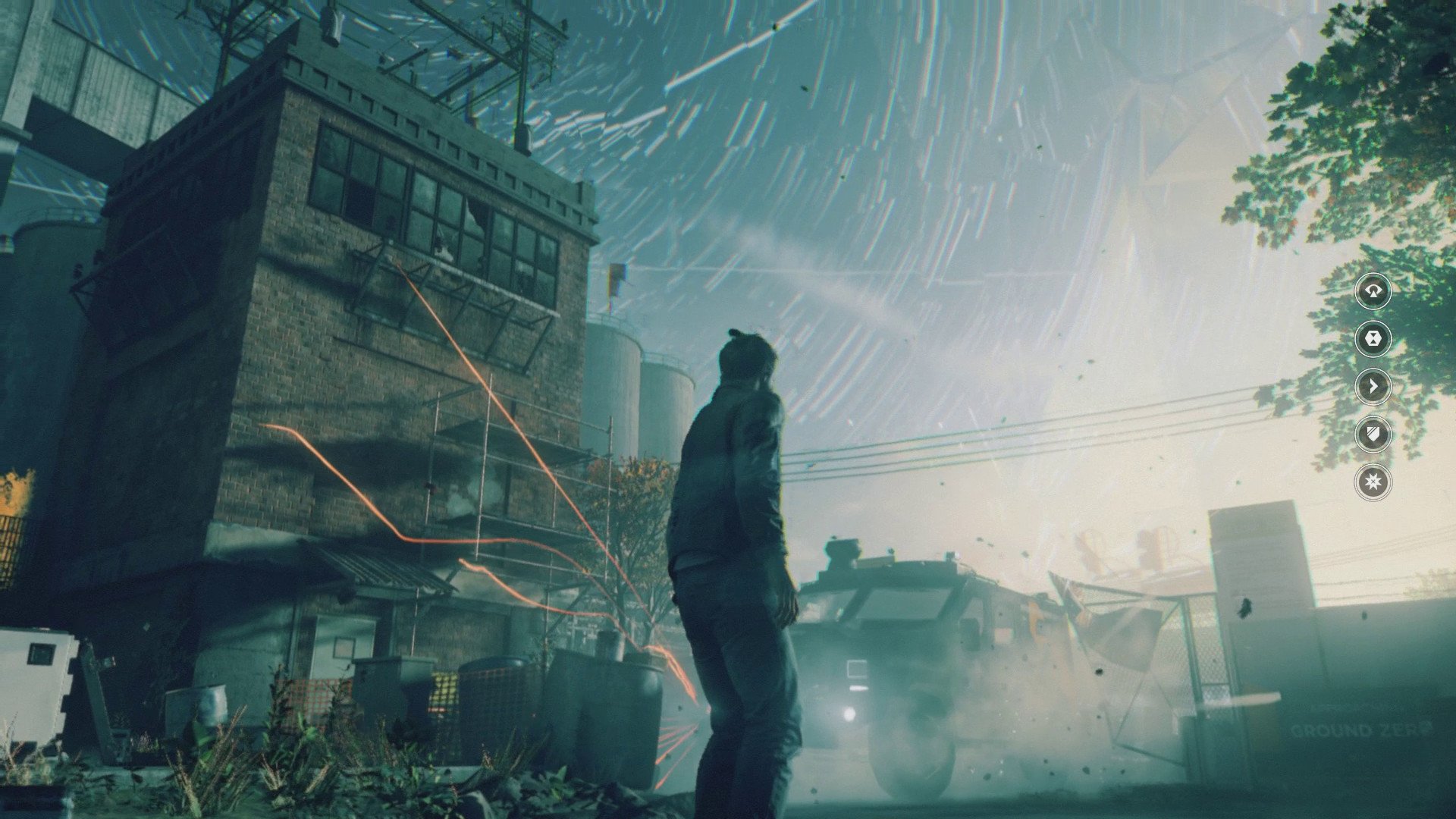
Pros:
- Audiovisual design is absolutely incredible
- Fresh and strategic take on third-person shooting
- The TV show is ground-breaking
- Story is rich with thought-provoking implications and great characters
Cons:
- Puzzle elements are basic and under-explored
- Combat sequences often felt brief
- It could be years before we get a sequel, and time machines do not exist
OUTSTANDING
4.5/5





While Quantum Break exposes the Xbox One's technical limitations, Remedy has crafted a masterpiece that earns its place among the best that the console has to offer. Quantum Break is the first thoroughly unmissable, truly unique console exclusive the Xbox One has. Every single Xbox One and W10 gaming PC owner should pick up this game, and the big-budget publishers out there funding similar cinematic experiences should take note. Quantum Break has permanently altered the way I want to experience storytelling in games.
Quantum Break launches on April 5th exclusively for Xbox One and the Windows 10 Store.

Jez Corden is the Executive Editor at Windows Central, focusing primarily on all things Xbox and gaming. Jez is known for breaking exclusive news and analysis as relates to the Microsoft ecosystem while being powered by tea. Follow on Twitter (X) and tune in to the XB2 Podcast, all about, you guessed it, Xbox!
